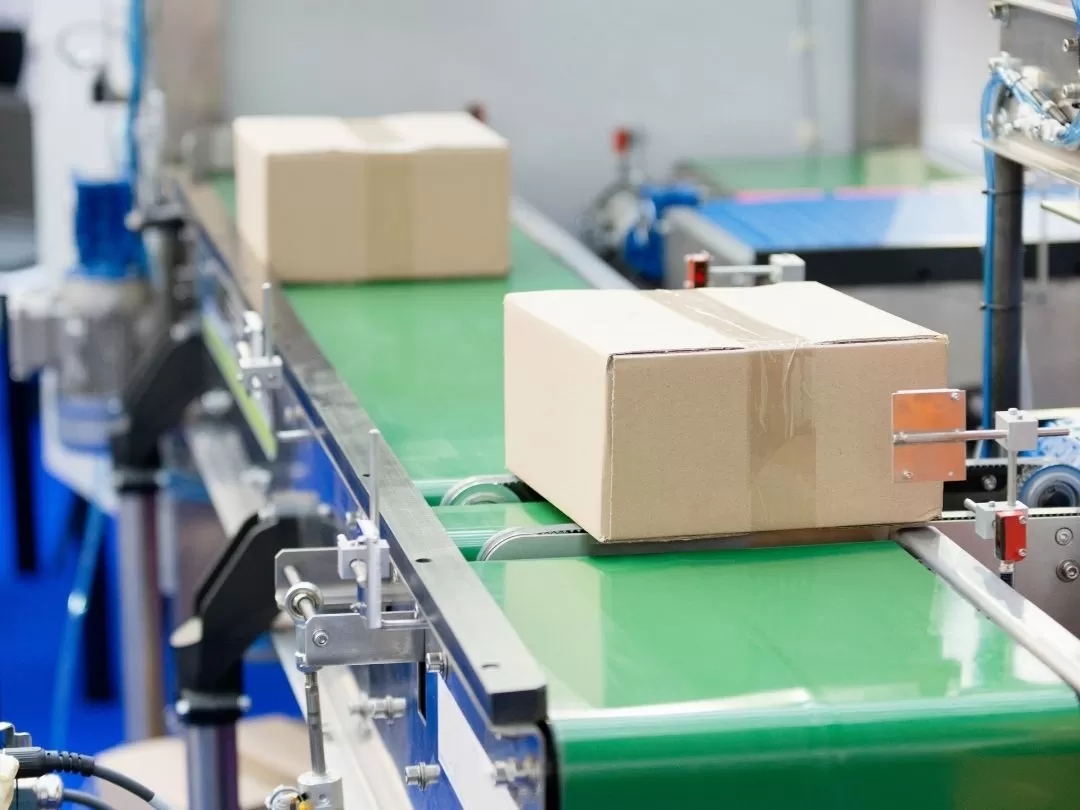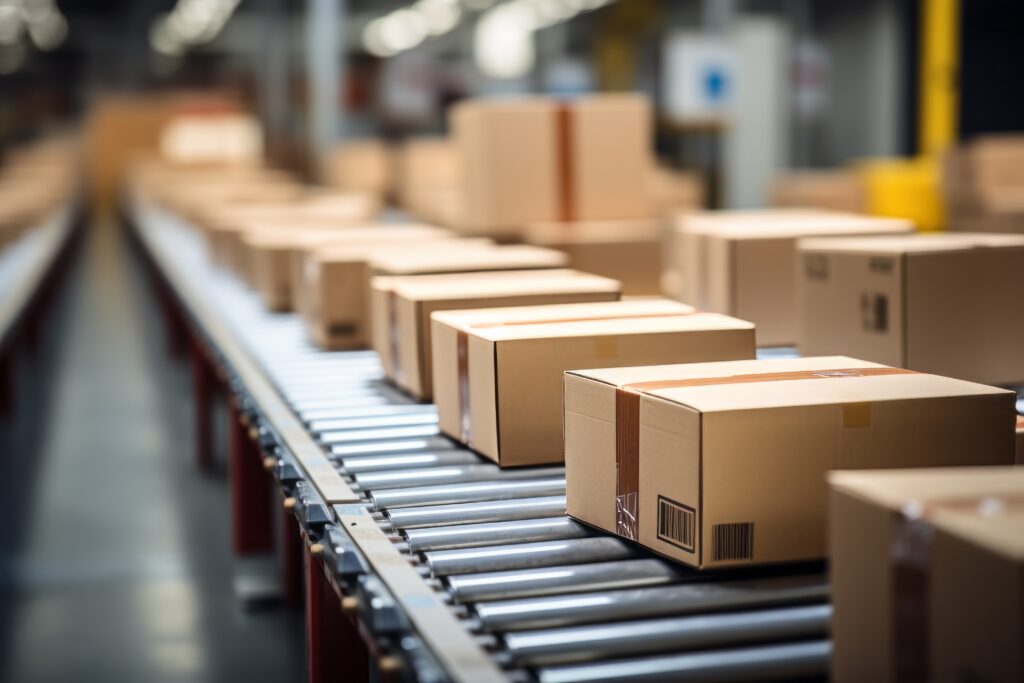What is packaging automation and what are its benefits?

Modern industry focuses on modern technologies that improve production and logistics. One of the most important elements of optimization is the automation of packaging processes, which allows companies to increase operational efficiency and reduce errors. The use of modern packaging machines not only speeds up order fulfillment, but also allows for precise adjustment of packaging methods to the specifics of various products. What is automation of packaging processes and what benefits does it bring to companies? We answer.
What is packaging automation?
Packaging automation is the process of using specialized devices to perform individual stages of product packaging. Packaging machines take over tasks related to product dosing, packaging formation and closing, which significantly improves the workflow and reduces the risk of human errors. The use of these solutions allows for the efficient packaging of both small individual products and large loads intended for collective transport.
Modern systems cover a wide range of devices, from simple cartoning machines to advanced packaging lines. Businesses can choose from a variety of packaging methods, adapting them to their specific industry and market requirements. This allows each company to find the optimal solution that meets its individual needs.
Packaging automation – benefits
We already know what packaging process automation is. Implementing these solutions allows improving the quality of logistics processes, increasing the precision of product security and better use of available resources. These benefits can be seen in various areas of the company's operations, and their impact includes both production optimization and improved control over the entire supply chain.
Increased precision and repeatability
Automated packaging eliminates the risk of improperly securing goods, which often happens in manual processes. Packaging machines ensure repeatability, ensuring that each package meets the same quality standards. This is especially important in industries requiring high accuracy, such as the pharmaceutical or food industry.
The implementation of modern devices also allows for appropriate protection of products against mechanical damage and the influence of external factors. By precisely forming cartons and using optimal closing techniques, companies can minimize losses resulting from improper packaging.
Packaging time optimization
Automatic systems significantly reduce the time required to complete individual stages of product packaging. The machines can work in continuous mode, which makes the process much faster than in the case of manual operation. Shorter packaging times allow for increased production line throughput, which is important in high-volume industries.
Standardization and quality control
The implementation of modern packaging systems gives companies full control over the process. Advanced machines are equipped with monitoring systems that allow for ongoing analysis of the correctness of the operations performed. This allows companies to eliminate errors at the production stage, which translates into greater efficiency of the entire line.

Types of machines used in packaging automation
Modern packaging machines vary in functionality, adapting to the specifics of various industries and product packaging requirements. The available solutions include both individual packaging devices and systems supporting bulk packaging. The most commonly used types of packaging machines are listed below.
Cartoners
Cartoners are devices used to pack products in cartons. Depending on the design, they are divided into vertical and horizontal models. Vertical cartoners are used for products that need to be inserted into the package from the top, while horizontal cartoners allow for side loading of goods. This solution is used, among others, in the cosmetics and pharmaceutical industries.
Tray Formers and Case Erectors
These are packaging machines designed to form trays and four-flap boxes. Tray Formers and Case Erectors enable automatic folding of packages, which significantly speeds up the preparation of products for transport.
Case packing machines
These machines make it possible to group many individual products into one larger package. They support various types of cartons, including wrap around carton, tray&hood carton and tray&lid carton. Automatic case packing It is particularly useful in the food industry, where large batches of goods need to be packed quickly.
Vertical Packaging Machines
Vertical Packaging Machines They are used in production where quick and efficient packing of loose or small products into plastic bags is required. They are used primarily in the food and chemical industries..
Dosing systems
Dosing systems play an essential role in the packaging process, ensuring precise measurement of the amount of product before placing it in the package. They are used in many industries, including food and chemicals, where dosing accuracy is of great importance.
Automated packaging and optimization of logistics processes
Modern technologies in the field of product packaging make it possible not only to speed up the packaging itself, but also to improve the logistics processes of the entire company. Automated packaging lines enable better use of warehouse space and facilitate the management of goods flow. Thanks to the use of precise stacking and labeling systems, products can be quickly identified and transported without the risk of errors.
Reduction of packaging material consumption
Packaging automation is not only about financial benefits and customer satisfaction. The issue of ecology is becoming more and more important for companies operating in various industries. Additionally,the use of modern technologies in packaging machines enables better adjustment of packaging to the dimensions of products. This allows you to avoid using too large boxes or excessive amounts of filler, which has a positive impact on environmental issues and waste reduction.
Automation of packaging processes is an investment that brings tangible benefits both in terms of operational efficiency and raw material savings. Companies that implement modern packaging machines, can count on streamlining processes and increasing market competitiveness.
FAQs:
1. What factors should be considered when selecting a packaging machine?
When selecting a packaging machine, you should consider the type of products to be packaged, the level of efficiency required, and the packaging methods available. Package dimensions, compatibility with existing production lines, and adaptability to future changes are also important considerations.
2. Is packaging automation profitable for small businesses?
Yes, while the initial investment can be high, many small businesses use automation on a limited scale, implementing single machines. Choosing modular systems allows you to gradually increase the level of automation as your business grows. The reduction in errors and time savings often offset the cost of purchasing the equipment.
3. What are the requirements for operating packaging machines?
Operating packaging machines requires training employees in the configuration, monitoring, and maintenance of the equipment. Depending on the degree of automation, operators must be familiar with the procedures for adjusting packaging parameters and basic principles of fault diagnosis. Modern systems often offer intuitive control panels that facilitate operation.
Spis treści


